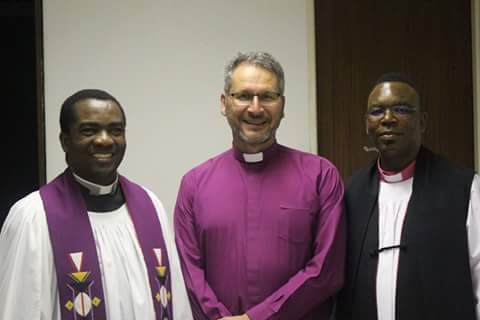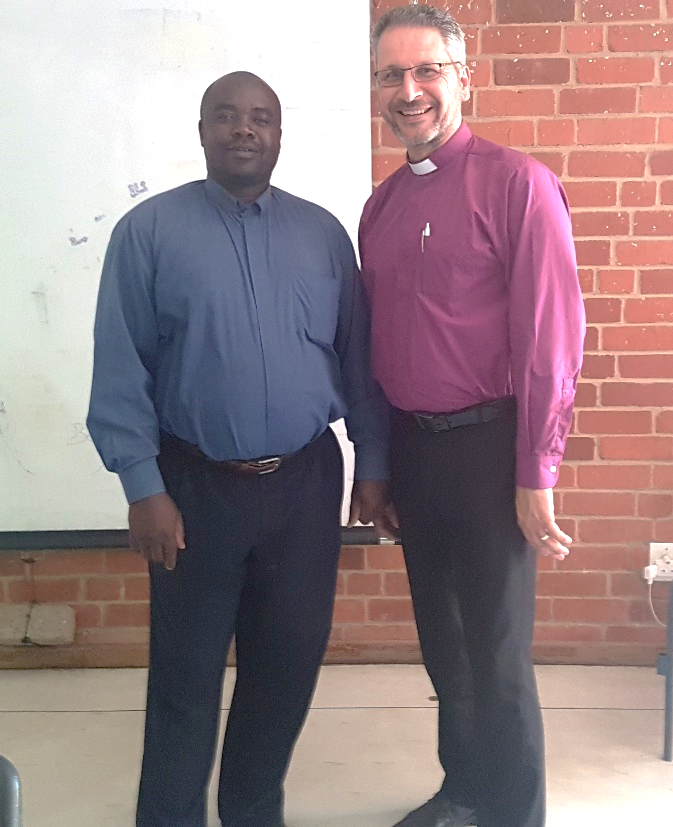July 31, 2017 | by: Sam Storms|
First published: http://www.samstorms.com
Few things are more controversial among Christians than the sovereignty of God. Is God truly sovereign over everything, including calamity, natural disasters, death, and demons, or is his sovereign control restricted to those things we typically regard as good, such as material blessing, family welfare, personal salvation, and good health? Today we turn our attention to ten things we should all know about God’s sovereignty.
Before we begin, it’s important to distinguish between natural evil, which would include such things as tornadoes, earthquakes, famine (although famine can often be the result of moral evil perpetrated by those who devastate a country through greed or theft), floods, and disease. Is God sovereign over natural evil? Does he exert absolute control over these events in nature, such that he could, if he willed to do so, prevent them from happening or redirect their course and minimize the extent of damage they incur? Yes.
Moral evil has reference to the decisions made by human beings. Does God have sovereignty over the will of man? Can he stir the heart of an unbeliever to do his will? Can he frustrate the will of a person whose determination is to do evil and thereby prevent sin from happening? When a Christian does what is right, to whom should the credit and praise be given? And how is it possible for God to exert sovereignty over all of life without undermining the moral responsibility of men and women? These are the questions that find their answer in Scripture.
(1) Numerous biblical texts explicitly teach that God exerts complete sovereignty and meticulous control over all the so-called forces of “nature.” I encourage you to take time to read Psalms 104; 147:8-9, 14-18; 148:1-12. Also consider Job 9:5-10; 26:7-14; 37:2-24; 38:8-41. Other texts include:
“It is he who made the earth by his power, who established the world by his wisdom; and by his understanding stretched out the heavens. When he utters his voice, there is a tumult of waters in the heavens, and he makes the mist rise from the ends of the earth. He makes lightning for the rain, and he brings forth the wind from his storehouses” (Jer. 10:12-13).
“Are there any among the false gods of the nations that can bring rain? Or can the heavens give showers? Are you not he, O Lord our God? We set our hope on you, for you do all these things” (Jer. 14:22).
“I also withheld the rain from you when there were yet three months to the harvest; I would send rain on one city, and send no rain on another city; one field would have rain, and the field on which it did not rain would wither” (Amos 4:7).
“When he summoned a famine on the land and broke all supply of bread . . .” (Psalm 105:16).
Jesus exercised this authority/sovereignty when he rebuked the storm on the Sea of Galilee, provoking this response from his disciples:
“And he awoke and rebuked the wind and said to the sea, ‘Peace! Be still!’ And the wind ceased, and there was a great calm. . . . And they were filled with great fear and said to one another, ‘Who then is this, that even the wind and the sea obey him?” (Mark 4:39-41).
Does this mean that God can put a halt to the destructive path of a tornado or redirect its trajectory, or that he can stop the waves of a tsunami? Yes.
(2) God is also sovereign over events that from our limited human point of view appear to be entirely random:
“The lot is cast into the lap, but its every decision is from the LORD” (Proverbs 16:33).
(3) His sovereignty extends to the affairs of our daily lives and the plans we make for each day:
“A man’s steps are from the LORD; how then can man understand his way?” (Proverbs 20:24)
“Many are the plans in the mind of a man, but it is the purpose of the LORD that will stand” (Proverbs 19:21)
“Come now, you who say, ‘Today or tomorrow we will go into such and such a town and spend a year there and trade and make a profit’—yet you do not know what tomorrow will bring. . . . Instead you ought to say, ‘If the Lord wills, we will live and do this or that’” (James 4:13-15).
(4) God is sovereign over both life and death. Many are ready to concede that God is sovereign over the beginning of life but they do not like the idea that God is sovereign over the time and manner of its end. But note the following:
“See now that I, even I, am he, and there is no god beside me; I kill and I make alive; I wound and I heal; and there is none that can deliver out of my hand” (Deuteronomy 32:39)
“The LORD kills and brings to life; he brings down to Sheol and raises up” (1 Samuel 12:6)
“Come now, you who say, ‘Today or tomorrow we will go into such and such a town and spend a year there and trade and make a profit’ – yet you do not know what tomorrow will bring. What is your life? For you are a mist that appears for a little time and then vanishes. Instead you ought to say, ‘If the Lord wills, we will live and do this or that’” (James 5:13-15).
David himself declared in no uncertain terms that every day of one’s life is written down in God’s book before any single day has yet to come to pass. In other words, the day of our birth and the day of our death have both been ordained by God:
“Your eyes saw my unformed substance; in your book were written, every one of them, the days that were formed for me, when as yet there was none of them” (Psalm 139:16).
When David made Bathsheba pregnant, the Lord disciplined him by taking the child. 2 Samuel 12:15 says, “Then the LORD struck the child that Uriah’s widow bore to David, so that he was sick . . . . Then it happened on the seventh day that the child died.”
(5) God is even sovereign over the disabilities with which some are born.
Then the LORD said to [Moses], “Who has made man’s mouth? Who makes him mute, or deaf, or seeing, or blind? Is it not I, the LORD?” (Exodus 4:11)
(6) God is sovereign over everything, even the unjust death of his own Son.
“Jesus, [who was] delivered up according to the definite plan and foreknowledge of God, you crucified and killed by the hands of lawless men.” (Acts 2:23)
“For truly in this city there were gathered together against your holy servant Jesus, whom you anointed, both Herod and Pontius Pilate, along with the Gentiles and the peoples of Israel, to do whatever your hand and your plan had predestined to take place.” (Acts 4:27-28)
“Yet it was the will of the LORD to crush him; he has put him to grief. . . . (Isaiah 53:10)
“[God] works all things according to the counsel of his will.” (Ephesians 1:11)
“Our God is in the heavens; he does all that he pleases.” (Psalm 115:3)
“I know that you can do all things, and that no purpose of yours can be thwarted.” (Job 42:2)
“All the inhabitants of the earth are accounted as nothing, and he does according to his will among the host of heaven and among the inhabitants of the earth; and none can stay his hand or say to him, ‘What have you done?’” (Daniel 4:35)
(7) God is also sovereign over the choices of human beings. If God does have sovereignty even over the choices of human beings, and they do evil things, is God morally culpable for their actions? No. This is the mystery of compatibilism, according to which both the sovereignty of God and the moral responsibility of human beings are perfectly compatible, neither canceling out the other. Several texts should be noted;
“Then God said to him [Abimelech] in the dream, ‘Yes, I know that you have done this in the integrity of your heart, and it was I who kept you from sinning against me. Therefore I did not let you touch her” (Genesis 20:6).
Here we see that God exerts control over the decision-making of Abimelech and restrains him from having illicit sexual relations with Sarah, Abraham’s wife. Some argue that God cannot do that. They say he cannot intrude on the human will and prevent a free moral agent from committing abuse or an atrocity. Yet we see from this story that God can surely prevent someone from sinning against someone else if he so chooses.
“The king’s heart is a stream of water in the hand of the Lord; he turns it wherever he will” (Prov. 21:1).
Again, God’s sovereignty over the will/heart of the king is seen in his determination to turn that will or to direct the king’s choices in accordance with whatever God pleases. And yet the king (or any person) is still morally responsible to God for the decisions he/she makes.
“In the first year of Cyrus the king of Persia, that the word of the Lord by the mouth of Jeremiah might be fulfilled, the Lord stirred up the spirit of Cyrus king of Persia, so that he made a proclamation throughout all his kingdom and also put it in writing . . .” (Ezra 1:1).
Here we see a concrete example of what is asserted in Proverbs 21:1. God moved on (“stirred up”) the heart of the pagan king Cyrus to issue a decree that the Jews should be free to return to Jerusalem and rebuild the temple (see also Ezra 6:22; 7:27). There are numerous other texts that describe how God exerted his will on and over the will of others so that his ultimate purpose might be achieved. See Deut. 2:30; Joshua 11:20; Judges 7:2-3,22; 1 Sam. 14:6,15,20; 2 Sam. 17:14; 1 Kings 12:15; 20:28-29; 2 Chron. 13:14-16; Acts 4:27-28; 2 Cor. 8:16-17; Rev. 17:17.
(8) God is sovereign over whether or not a woman becomes pregnant. For this, see Genesis 16:2; 29:31; 1 Sam. 1:5; Judges 13:3.
(9) God is sovereign over the suffering of his people, as the cases of Job and Joseph make clear. James clearly says that God had a purpose in it all:
“You have heard of the steadfastness of Job, and you have seen the purpose (telos) of the Lord, how the Lord is compassionate and merciful” (James 5:11).
But what about Satan’s hand in the suffering of Job? Did he not instigate the events that led to the death of Job’s family, the loss of his property, and the physical afflictions that he endured? Yes, but even Satan can do nothing apart from God’s sovereign permission. We read in Mark 1:27 that Jesus “commands even the unclean spirits, and they obey him.” And Luke 4:36 says, “With authority and power he commands the unclean spirits and they come out.” No matter how powerful the enemy and his hordes may appear to be, they are always subordinate to the overruling will of a sovereign God.
When Joseph’s brothers cowered in fear of what might happen to them for having sold him into slavery, Joseph declared:
“As for you, you meant evil against me, but God meant it for good, to bring it about that many people should be kept alive, as they are today” (Gen. 50:20).
John Piper also sheds light on the experience of Joseph who was sold into slavery by his brothers:
[Genesis 50:20] says, “You meant evil against me.” Evil is a feminine singular noun. Then it says, “God meant it for good.” The word “it” is a feminine singular suffix that can only agree with the antecedent feminine singular noun, “evil.” And the verb “meant” is the same past tense in both cases. You meant evil against me in the past, as you were doing it. And God meant that very evil, not as evil, but as good in the past as you were doing it. And to make this perfectly clear, Psalm 105:17 says about Joseph’s coming to Egypt, “[God] sent a man before them, Joseph, who was sold as a slave.” God sent him. God did not find him there owing to evil choices, and then try to make something good come of it. Therefore this text stands as a kind of paradigm for how to understand the evil will of man within the sovereign will of God.”
(10) God is also sovereign over the animal kingdom, even when its inhabitants do destructive things. When the Assyrians populated Samaria with foreigners, 2 Kings 17:25 says, “Therefore the LORD sent lions among them which killed some of them.” And who can forget the words of Daniel in the lions’ den: “My God sent his angel and shut the lions’ mouths” (Dan. 6:22). John Piper explains:
“Other Scriptures speak of God commanding birds and bears and donkeys and large fish to do his bidding. Which means that all calamities that are owing to animal life are ultimately in the control of God. He can see a pit bull break loose from his chain and attack a child; and he could, with one word, command that its mouth be shut. Similarly he controls the invisible animal and plant life that wreaks havoc in the world: bacteria and viruses and parasites and thousands of microscopic beings that destroy health and life. If God can shut the mouth of a ravenous lion, then he can shut the mouth of a malaria-carrying mosquito and nullify every other animal that kills.”
One final comment is in order. Although God’s sovereignty is pervasive, that does not mean we will always be able to discern his purposes in the many events of life or why he has ordained things in his secret, decretive will that run contrary to what he has made known in his moral or perceptive will. If embracing this tension, this mystery, is offensive to you, I doubt that you will find much comfort in knowing that God is sovereign. But he is. Do I believe this because I can explain it? Do I believe it because it is to my mind no longer a mystery? No. I believe it because this is what I see taught throughout Scripture.








